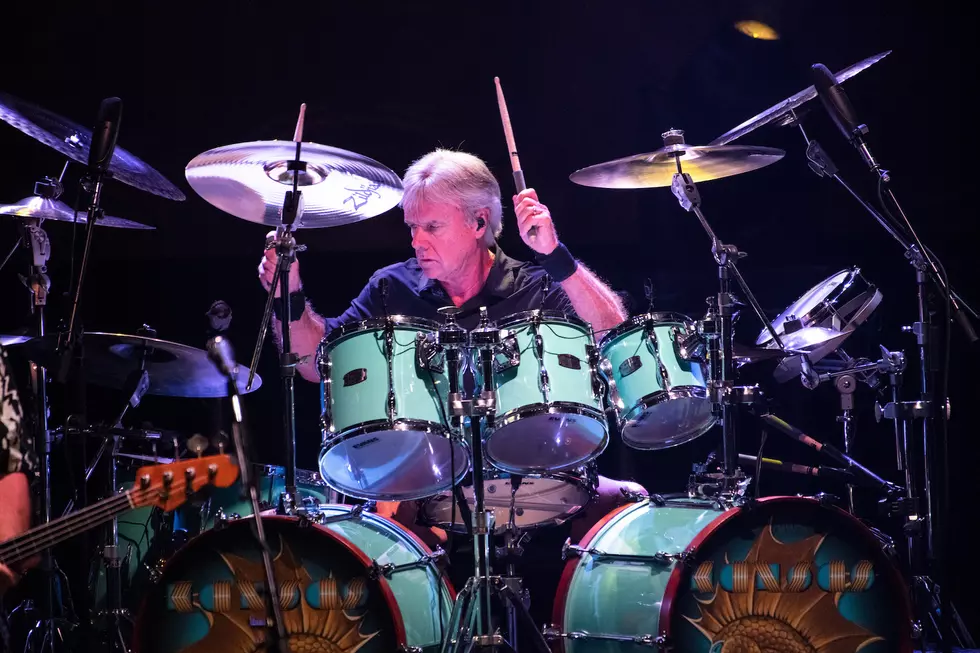
How Kansas Rebuilt For a Surprise Comeback With ‘Power’
Many successful '70s rockers faced serious career challenges in the '80s, and Kansas were no exception. But the progressive rock greats forcefully joined the comeback trail in 1986, armed with a confident new album they intentionally named Power.
Backing up a bit first, though, it's no exaggeration to state that Kansas were among the precious few homegrown bands that reigned over the American art-rock landscape during the '70s – until the '80s humbled the group, which was now divided by both professional and personal differences.
The musical conundrum could be easily summarized by questions that also afflicted peer bands like Journey and Styx, around the same time: "To prog or not to prog?" and "Why not reach for the multi-platinum brass ring of AOR?"
The second issue was a little more complicated, and revolved around founding members Kerry Livgren's and Dave Hope's recent conversion to Christianity, their desire to address this choice in the band's music and the disagreements that eventually led to singer and keyboardist Steve Walsh's departure in 1981.
Walsh's dual role within the band was filled by the talented John Elefante for two further albums: 1982's Vinyl Confessions and '83's Drastic Measures. Neither sold in remarkable qualities, despite producing a few respectable radio singles, and by 1984 Kansas had officially broken up. A greatest hits LP was expediently released that same year, as though to underscore the perception that Epic Records considered their former hitmakers dead and buried.
Or were they? The answer turned out to be "not quite."
Listen to Kansas Perform 'All I Wanted'
The early months of 1986 yielded the first signs of a reconstituted Kansas, as founding members Phil Ehart (drums) and Rich Williams (guitar) were joined by a returning Steve Walsh – who in turn brought along bassist Billy Greer from his post-Kansas band Streets. The final piece of the puzzle arguably piqued fan interest the most, as Kansas added Steve Morse, the erstwhile Dixie Dregs guitar god who would later join Deep Purple. In 1986, however, Morse was likewise trying to find his footing in a new decade.
Before long, MCA Records had signed "Kansas 3.0" to a contract. Power, which was unveiled on Nov. 28, 1986, tried to walk a fine line between what older fans expected and what new fans might want.
As a result, the opening "Silhouettes in Disguise," Kansas' equally hard-charging "We're Not Alone Anymore" and the deliberate title track were essentially heavy-metal concoctions by the '80s' melodic definition of the style. The emotional "All I Wanted" and "Can't Cry Anymore," by contrasts, qualified as made-to-order '80s power ballads.
Hybrid cuts like "Secret Service," "Three Pretenders" and "Tomb 19" fit the AOR rules (yet were made more interesting by their cryptic lyrics), while "Taking in the View" was a timeless acoustic vehicle with unquestionable prog-ish qualities. The instrumental "Musicatto" unquestionably harked back to Kansas' musically-ambitious early days.
They receiving mixed opinions from both fans and critics, but Kansas' talents ultimately carried the day – pushing Power to a very respectable No. 35 on the Billboard chart. The single "All I Wanted" rose to an even more impressive No. 19.
Unfortunately, the group's excitement would be short lived. Kansas' next album, 1988's In the Spirit of Things, received no promotional support from MCA, which instead soon dropped the band after an internal company shakeup.
As the '90s dawned, Morse quit and a string of lineup changes ensued. Kansas focused its energies on the concert trail instead of studio albums, finally pulling the plug on recording for more than a decade before returning with 2016's The Prelude Implicit.
See Kansas Among Rock’s Most Underrated Albums
More From Ultimate Classic Rock









